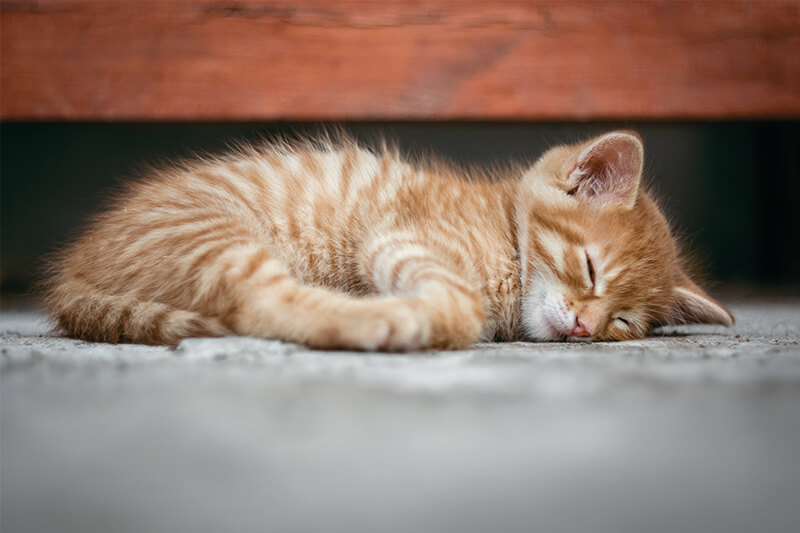Preparing for your new puppy or kitten
While it is very exciting waiting to welcome your new pet home, it can sometimes be a little daunting, especially if they are your first. We have put together a few handy tips to make their arrival as smooth as possible for both you and your new furry friend. For your puppy or kitten: […]
While it is very exciting waiting to welcome your new pet home, it can sometimes be a little daunting, especially if they are your first. We have put together a few handy tips to make their arrival as smooth as possible for both you and your new furry friend.
For your puppy or kitten:
- A safe place – Ensure they have an area that is just theirs, where they can feel safe. This is particularly important if they are not the first pet in your house, or if there are children around. This is likely to be a nice comfy bed. It needs to be somewhere that is respected as their space, where they can escape to if they feel scared and left to rest in peace and quiet when they need to. (Like human babies, puppies and kittens need lots of sleep when they are young.)
- Puppy/ kitten-proof the house – Ensure any dangerous objects are well out of reach or tidied away. Remember kittens like to climb – so a work surface may not be ‘out of reach’ for long!
- Toys – It’s inevitable when you know there is a new puppy or kitten on the horizon to want to go out and buy them toys – and by all means do! As with any dog or cat toy – it’s best to supervise them playing at first, to ensure they are not pulling it apart and eating any of the pieces. Buy toys which are appropriate for their size and age, for example, puppy versions of chew toys, so they do not damage their teeth chomping on them.
- Food – Find out what the breeder is feeding them and ensure you have the same food to give them when they first get home. There is a huge amount of change going on at this point in their lives – moving away from mum and their siblings and into a new unfamiliar environment. We don’t want to be adding a change in diet to the mix at this point. Even if you are keen to change their food, give them a little time to settle in prior to starting this gradual transition.
- Insurance – Get them insured with pet insurance from a reputable provider. It’s best to get them covered immediately from when you plan to bring them home. An unexpected accident or illness can require sudden treatment and vet bills can accumulate quickly – having a good insurance cover can help provide some peace of mind that they will be able to receive whatever treatment they may need. Your vet may be able to help provide further advice on this topic. It is sensible to always read the small print of an insurance policy. It is a good idea to get a life-long cover, to avoid certain conditions being excluded after 1 year.
- Vet – Get them registered with your local vets and booked in for a check-up soon after they have joined you.
- Parasite protection – Check with the breeder what flea and worm treatment your puppy/ kitten has received so that you can go to your vets with this knowledge. (What they have had and when the doses were given are really handy for your vet to know, so they can choose what is needed, and when it is next due.)
- Vaccinations – Vaccinations are vital in helping to keep your puppy or kitten healthy and happy. If they have not yet had any vaccinations, then these may well be started at their first vet check-up, in line with your vet’s protocol. Some breeders will elect to give the first vaccination – it may be worth checking that the brand used by the breeder is compatible with that used by your vets. They’ll need to see your puppy or kitten’s vaccination paperwork. If you’ve bought your puppy or kitten from a responsible breeder, they should be able to supply you with this.
- Microchipping – Puppies must be microchipped by eight weeks of age and kittens by the age of 20 weeks.
- Bring home something which smells of mum – Where possible, it can be soothing for your little one to bring them home with something which has their mother and littermates’ smell on it. A blanket, towel or t-shirt are all ideal. The item can be put in their new bed when you get them home, to help it feel a little familiar for them, and to comfort them after leaving their mum and siblings.
For your new feline friend:
- Litter Tray – You’ll want to keep your kitten inside when you first bring them home, and ideally until they are neutered. Ensure they have easy access to a litter tray, and that it is placed somewhere quiet, away from their food and water bowls. If the kitten is joining other cats in the household there should be 1 litter tray per cat plus 1 extra.
- No escape routes – Kittens can be little explorers, so be careful to shut doors/ windows to rooms which they are left in, to avoid them getting out into the garden before you intend them to do so!
- Microchip – Kittens must be implanted with a microchip before they reach the age of 20 weeks.
- Toys – get some cat specific toys. A scratching post may be a good idea, to try and minimise damage to your house and furniture.
Puppy particulars:
- Garden – Ensure the garden is ‘puppy-proofed’. Puppies have a surprising ability to search out the smallest hole and squeeze through it! Prior to bringing your pup home, go round the garden carefully and ensure there are no potential escape routes.
- Crate training – is very popular with puppies. It provides them with somewhere safe, and which is their space only. Using a crate also means you know that they are safely shut away overnight/ if you pop out for a short time, and need not constantly worry that they may be up to mischief which could harm them. Obviously, it is important that they have plenty of access to water, and are not shut in the crate for long periods of time. It could be worth contacting your local dog trainer for further advice on this topic.
- Dog training – Search out a local dog trainer and get your new puppy (and you!) booked into puppy classes once they are old enough and have had the appropriate vaccinations. It’s great to get them socialising and learning while they are still young.
- Plan your training – Get everybody in the house on board with any training strategies you want to use for your puppy from the word go: for example, reward words, toilet commands, etc.
- Minimise chewing potential – Every puppy will be different, but it could be worth preparing for the fact that you may end up with a ‘chewer’! Find a place to hide your shoes out of the way for the first few months and consider using a ‘no-chew’ spray, such as bitter apple spray on the accessible/ chewable parts of furniture. Many of these habits can be limited/ avoided if they never get the opportunity to carry them out when they are young, although it should be noted that many puppies chew to relieve the discomfort of teething.
We hope our top tips can help you and your new arrival settle in as smoothly as possible. Follow us as we delve into how to introduce your new puppy or kitten to existing pets in the coming weeks!


.jpg)

